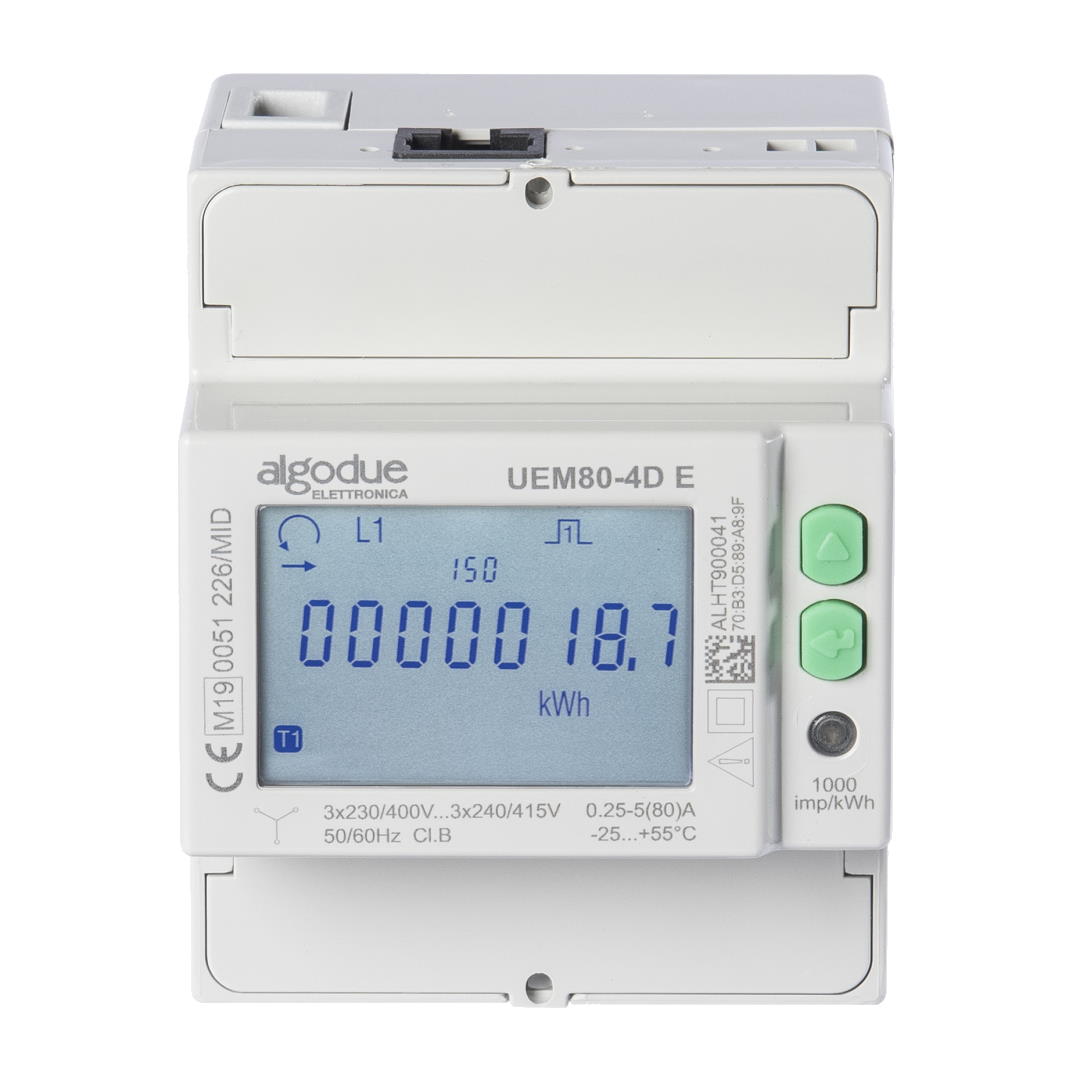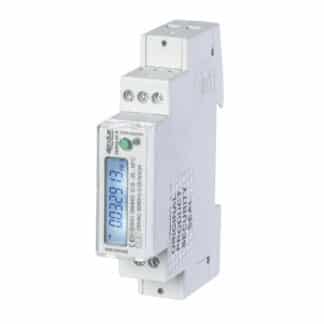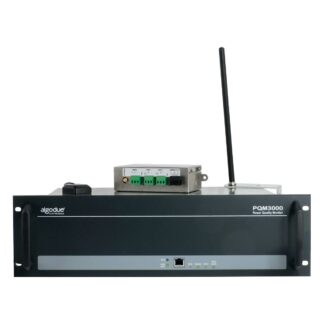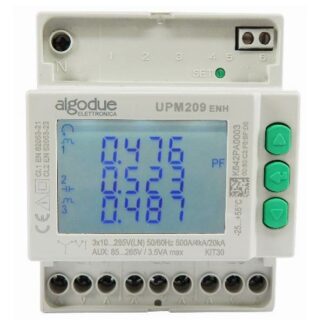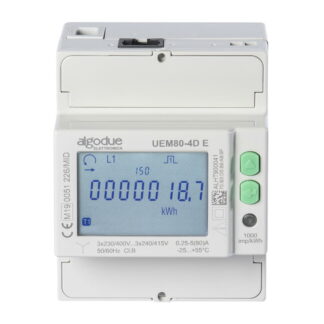Description
Product Description
The UEM series of four-DIN module kilowatt-hour meters is perfect for three-phase sub metering in both commercial and residential applications. Including options for both 3 wire and 4 wire electrical networks. With the option for built-in communications, including RS-485 Modbus RTU/ASCII, Ethernet Modbus-TCP or M-Bus, this meter can be easily networked with third-party systems or devices, including building management systems (BMS), energy management systems (EMS) or industrial PLC control systems.
With options for 80A direct connect or 1/5A current transformer (CT) connect the UEM kWh meters can be used in a wide range of three-phase power monitoring applications including low power applications of only a few amps, to high power applications up to a few kA.
Besides energy, the meter also measures the main electrical parameters, making them available on the backlit LCD display and via the built-in communications (if available).
A dedicated application for remote management can be provided via the below options:
- Modbus Master software > for energy meter management by PC via an RS-485 Modbus network.
- M-Bus Master software > for energy meter management by PC via an M-Bus network.
- Web server > built-in interface for energy meter management by PC via an Ethernet network. Furthermore, it allows for data recording and manual or automatic data transfer. In the case of automatic transfer, data is sent to a remote server based on a set time schedule.
The meter is built according to EN 50470-1 standard. The active energy is compliant to IEC/EN 62053-21 class 1, but for MID certified device it moreover fulfills class B requirements according to EN 50470-3. The accuracy of reactive energy is compliant to IEC/EN 62053-23 class 2.
The integrated backlit LCD display provides a user interface with clear graphic symbols comprehensible at a glance, along with a metrological LED on the front panel.
These meters are manufactured in Italy to the highest standard of quality and reliability. The analysis of the mean time between failures (MTBF), the accurate selection of components, and the reduction of the internal working temperatures together with strict production and control standards guarantee a product with excellent quality and long-lasting reliability.

